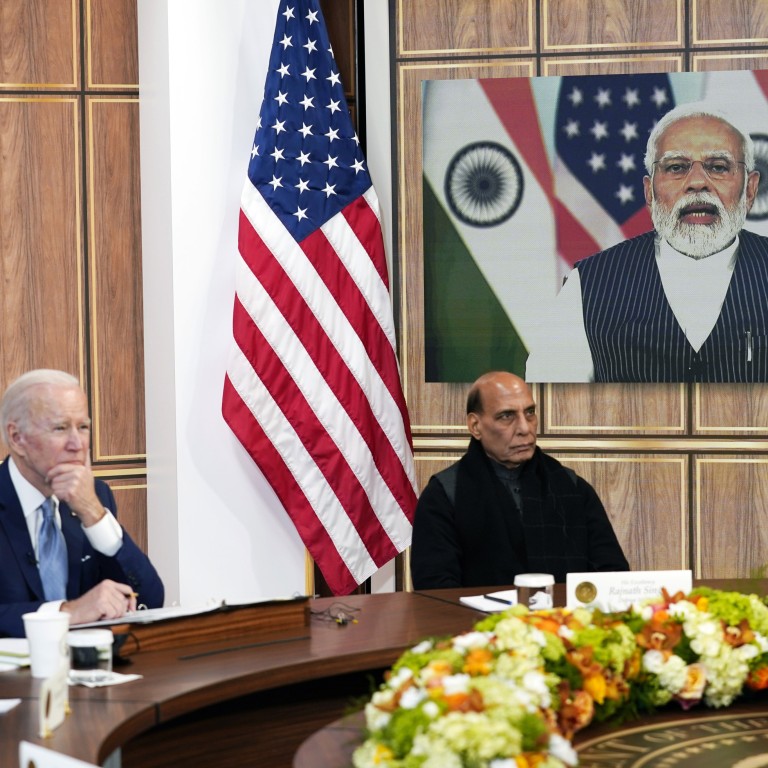
Why China will struggle to draw India away from US despite close stance on Russia’s war in Ukraine
- India’s balancing act between the US and Russia has not impacted its tilt towards Washington in the great power rivalry
- China has clearly underestimated India’s grievances with their protracted border stand-off
As Beijing sees it, New Delhi’s refusal to succumb to Western pressure to call out Russian President Vladimir Putin’s aggression, alongside its dependence on Russian weapons, offer a golden opportunity to pull India away from Washington’s orbit.
US and India pledge to deepen military cooperation
Mounting civilian casualties in Ukraine, which was invaded by Russian forces 48 days ago, have also prompted India to delicately adjust its largely pro-Russia stance.
In a departure from its repeated abstention votes in the United Nations on resolutions pertaining to Russia’s role in the Ukraine crisis, New Delhi has “unequivocally” condemned the killings uncovered in the city of Bucha and called for an independent investigation.
But China is also trying to woo India in the wake of the Ukraine war, which has crystallised India’s divide with the US and exposed the fragility of Washington’s China-focused Indo-Pacific strategy that relies on New Delhi’s support and participation. But Beijing has clearly underestimated New Delhi’s grievances with their protracted border stand-off, with no direct talks between Modi and Chinese President Xi Jinping since May 2020.
Wang’s request to call on Modi was reportedly rejected by the prime minister himself. Both sides continued to talk past each other, with Wang highlighting their similar stance on Ukraine and Indian officials being adamant about a de-escalation of border tensions before bilateral ties could return to normalcy.
It is clear that India’s self-proclaimed neutrality on the Ukraine war is as much about its security dependence on Russia, as it is about China. One of the biggest reasons for New Delhi to balk at denouncing Russia’s aggression against Ukraine is that it needs Moscow’s weapons supply to counter Beijing.
From New Delhi’s perspective, China remains a top obstacle to its global ascendance, given Beijing’s willingness to go to war over border disputes and its support for India’s arch rival Pakistan. And this is unlikely to change in the near future.


